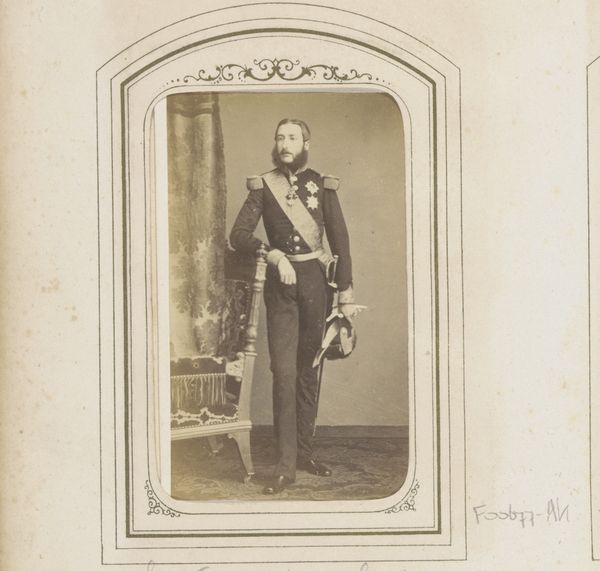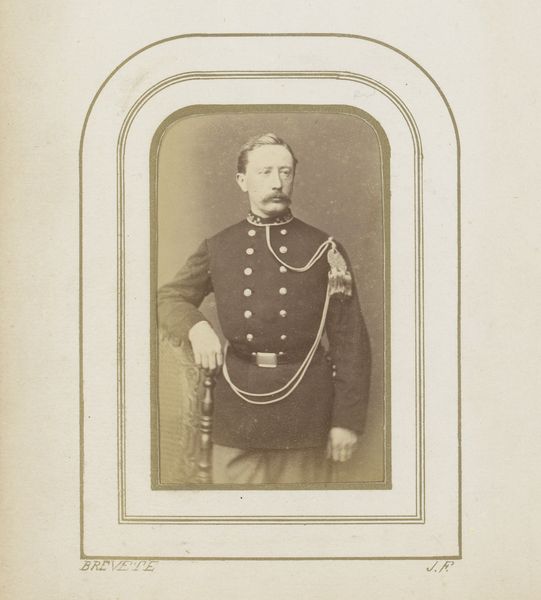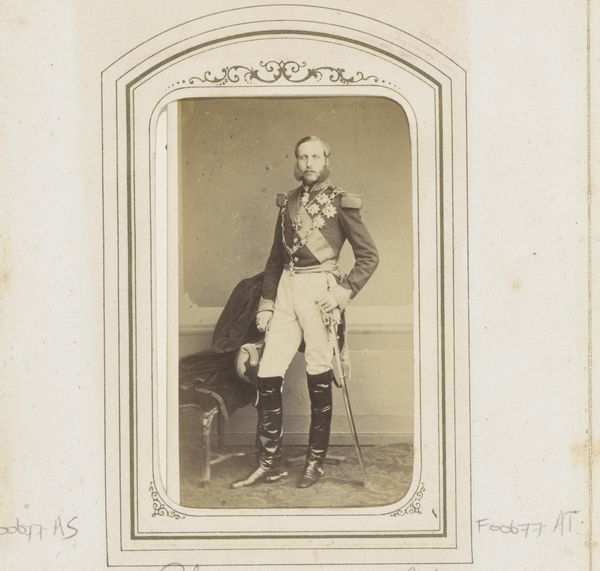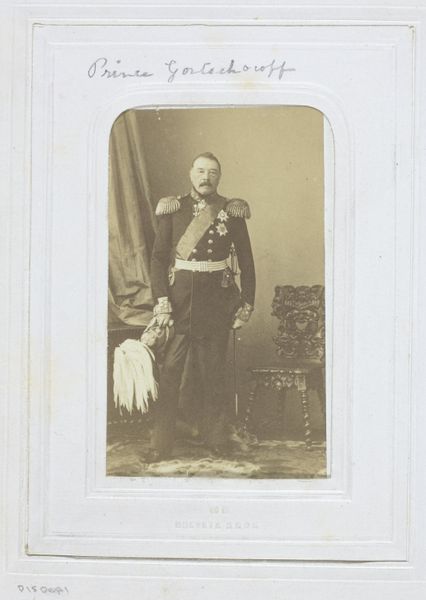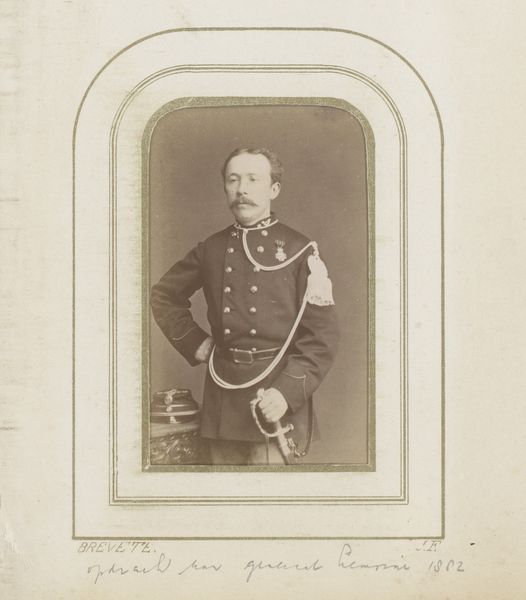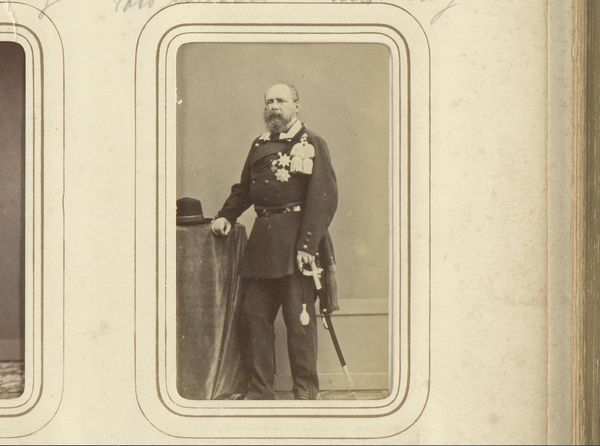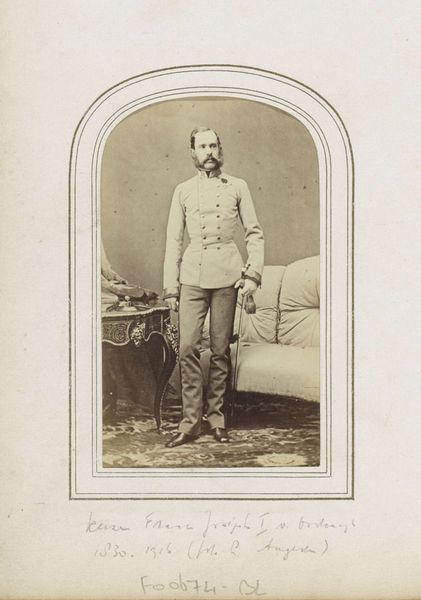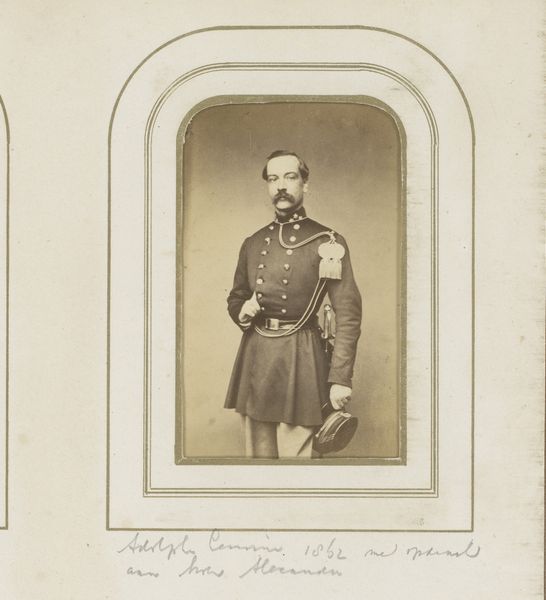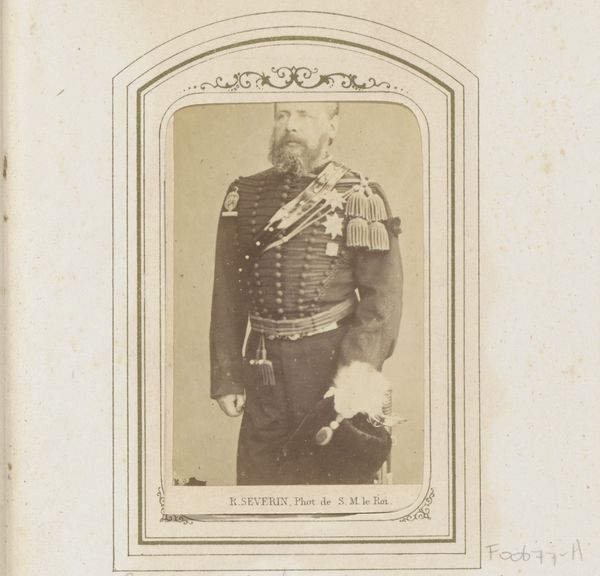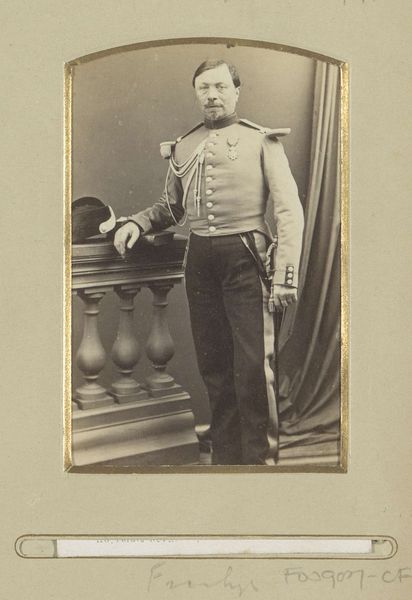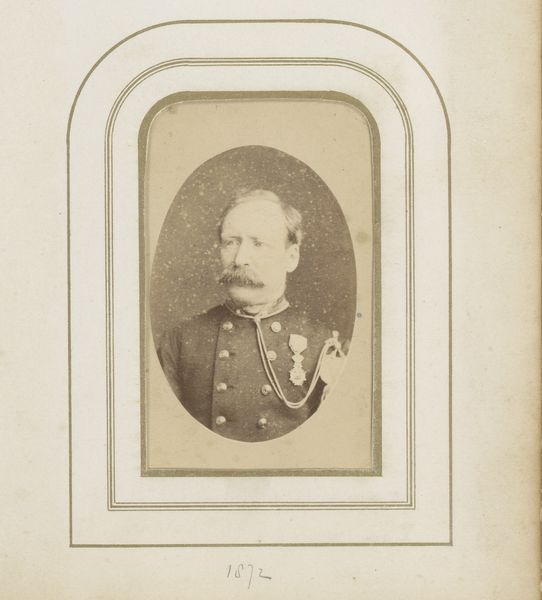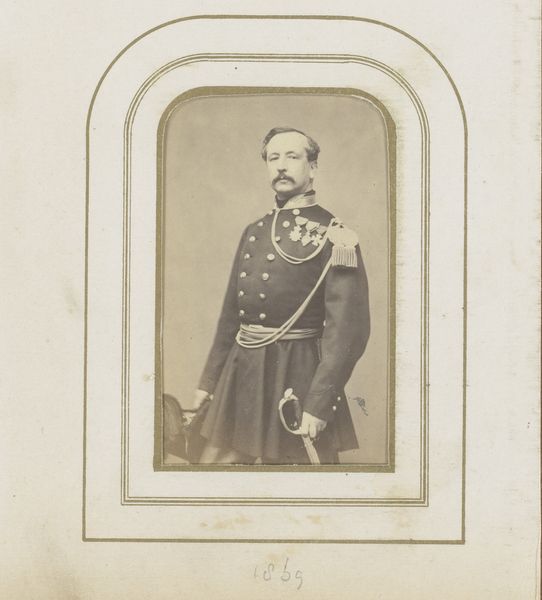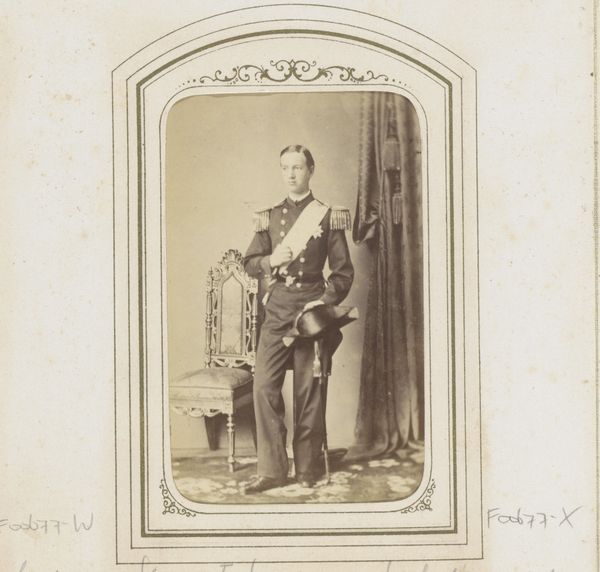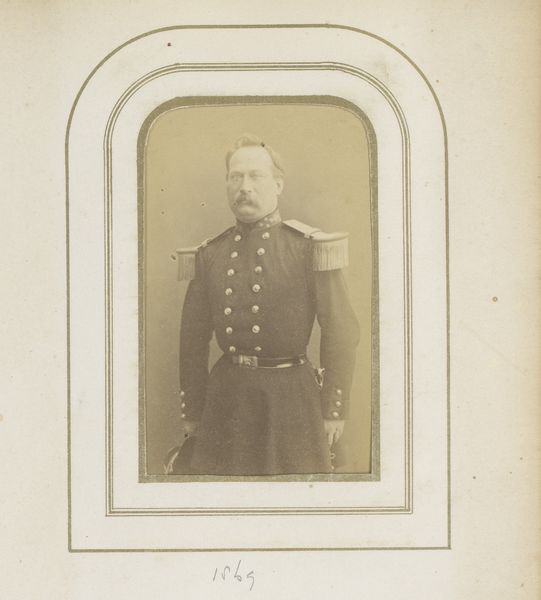
Dimensions: height 85 mm, width 53 mm
Copyright: Rijks Museum: Open Domain
This albumen print shows Alexander II, Tsar of Russia, and was created by Albert, a photographer, in the 19th century. As an artifact of its time, this image provides insight into the construction of power through photography. The portrait presents Alexander II in his military regalia, laden with medals and decorations, visually reinforcing his authority and status. In 19th-century Russia, the Tsarist regime wielded significant control over artistic production, using art, architecture, and photography as tools to promote its ideology. Photography, in particular, became a medium for disseminating idealized images of the Tsar and the imperial family, contributing to the construction of a carefully crafted public image. Understanding the role of photography in shaping public perception requires examining historical records, official documents, and cultural commentaries. The analysis of these resources allows us to comprehend the complex interplay between art, power, and society. In this way, we can learn about the ways Tsarist Russia used photography to reinforce its authority and shape its own cultural narrative.
Comments
No comments
Be the first to comment and join the conversation on the ultimate creative platform.
